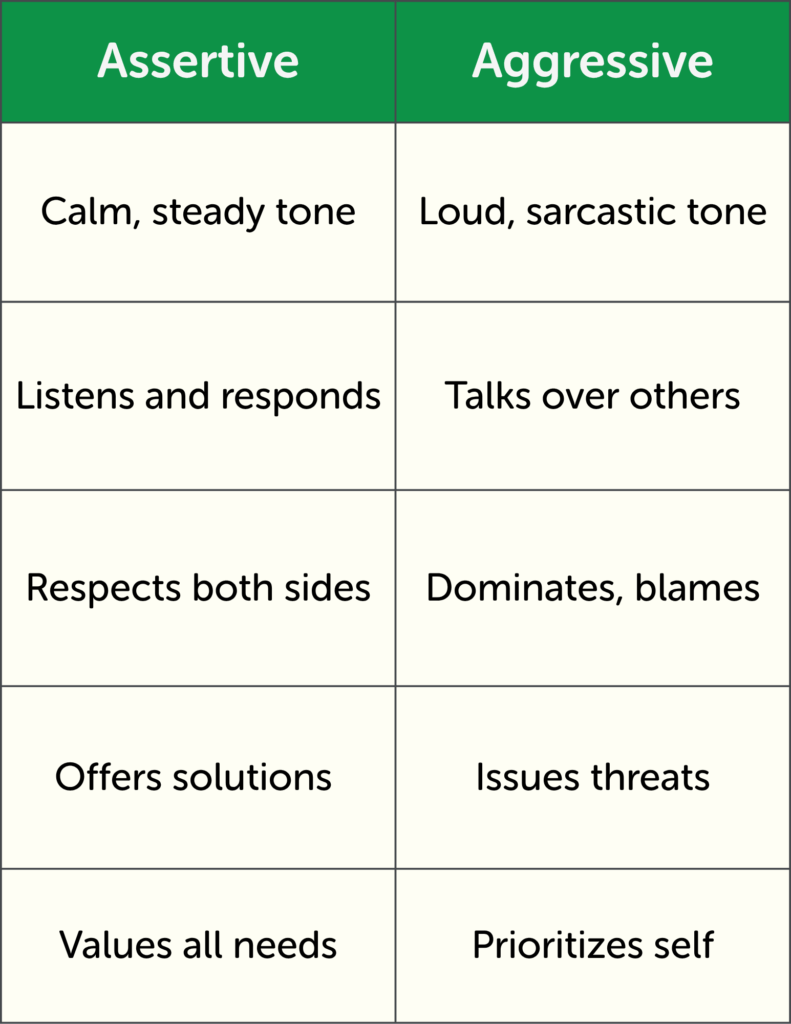
Assertive Communication Skills for Compliance Officers | 8 Steps
A career in healthcare compliance can be both exciting and overwhelming. You’re tasked with ensuring regulations are followed; risks are managed, and ethical standards are upheld—all while working with clinical and administrative leaders who may have vastly different priorities.
When it comes to the compliance program, effective communication is essential for building strong relationships, resolving conflicts and gaining buy-in. One of the most valuable interpersonal tools to help you achieve these goals is assertive communication. It allows you to express your thoughts, needs and boundaries in a clear and respectful manner.
But here’s the challenge—it’s easy to confuse being assertive with being aggressive.
Understanding the difference between these styles can help you avoid unnecessary conflict and communicate more effectively when it comes to compliance-related needs.
In this article, I cover:
- Key differences between the two communication styles
- How assertive communication benefits the compliance program
- Strategies to help you master this skillset
What Is Assertive Communication?
Assertiveness is a positive form of communication that uses a balanced approach. You express your opinion about something that you want (which is placing value in yourself), while respecting the opinions of the other people involved (which is placing value in others).
For example, let’s assume your audit plan includes a review of medical necessity documentation for your cardiac rehab program. Let’s further assume the program’s director insists her unit doesn’t need to complete the audit, nor does she have available staff to complete the work.
Assertive communication might look like you saying:
“I understand your team is extremely busy right now. However, cardiac rehab billing has been the subject of a number of government settlements lately, and we want to make sure our practices can withstand a government investigation or audit. What if we work together to find the least disruptive approach for your team to complete the work?”
This response is assertive because it acknowledges the program director’s concerns while communicating a compliance need.
An assertive approach has several benefits:
- First, it shows respect for yourself, which can help build confidence and self-esteem as you are expressing your needs in a positive manner.
- Second, it’s an effective way to resolve conflict because you place equal value on everyone’s opinions.
- Finally, it strengthens the relationship because you demonstrate respect for others.
What Is Aggressive Communication?
Aggressiveness is a negative form of communication. When you communicate aggressively, you offset the above-noted balance by sending a message to others that your opinion has a higher value than their opinion. It tends to be forceful, disrespectful, and often disregards the needs or perspectives of others.
Let’s circle back to the scenario involving the cardiac rehab audit for a moment. The following might look like aggressive communication when responding back to the program director:
“This is completely unacceptable. If your team doesn’t care about complying with the regulations, I’ll escalate this to your supervisor and let them know you’re putting the organization at risk.”
Yikes.
Such a response is aggressive because it uses blame, sarcasm, threats and an authoritarian tone.
An aggressive approach can create several risks for the compliance program.
- While it may produce short-term results, it damages trust and long-term relationships, reducing your chances of buy-in.
- Taking such an approach demonstrates an intent to shut down dialogue at a time when you need it most for your compliance program activities.
- It creates an environment where operational leaders feel reluctant to seek your advice. This can result in little messes becoming big ones because leaders are not reaching out to you proactively.
Key Differences between Aggressive and Assertive Communication
Generally speaking, assertive communication focuses on standing up for yourself. Aggressive communication focuses on attacking others. To help distinguish the difference, consider the following comparison and ask yourself—which feels more respectful?

3 Ways Assertive Communication Drives Compliance Success
Healthcare compliance officers often deal with sensitive topics like billing errors, patient privacy breaches or improper medical record documentation, all of which, by their very nature, can be emotionally charged situations. This makes good communication more important than ever.
Assertive communication helps when it comes to carrying out sensitive compliance work for three main reasons.
1. It nurtures your professional relationships.
Assertive individuals communicate openly (i.e., sharing the good and bad news), which leads to trust and mutual respect while preventing resentment and misunderstandings. Open communication also fosters collaboration, productivity and teamwork. These traits are important when it comes to things like finding a compliant solution to a business proposal or carrying out corrective action plans.

2. It improves self-confidence and decision-making.
When individuals advocate for their needs and opinions, they feel more empowered. This confidence leads to better decision-making and problem-solving skills. Assertive communicators are willing to ask questions, clarify expectations, and negotiate effectively. This benefits work such as investigations, internal consulting and auditing.
3. It encourages respect and professionalism.
Assertive communication promotes a culture of mutual respect. When you communicate in a way that sets clear expectations and provides constructive feedback, you create an environment where ideas are valued.
When it comes to things like implementing a new operational process to meet a requirement, or handling a government payer refund, compliance officers must communicate expectations, provide guidance and handle conflicts professionally. These are characteristics of an assertive style that will improve your results.
Jay is a compliance professional and consultant in Colorado. He is a healthcare lawyer with significant industry knowledge of the U.S. healthcare market. Over the past 20 years, he has worked for large for-profit and non-profit health systems and small physician-owned entities. In tackling the countless regulatory and operational issues for these diverse organization types, he has developed a deep understanding of the business of healthcare and the regulations governing the industry.



